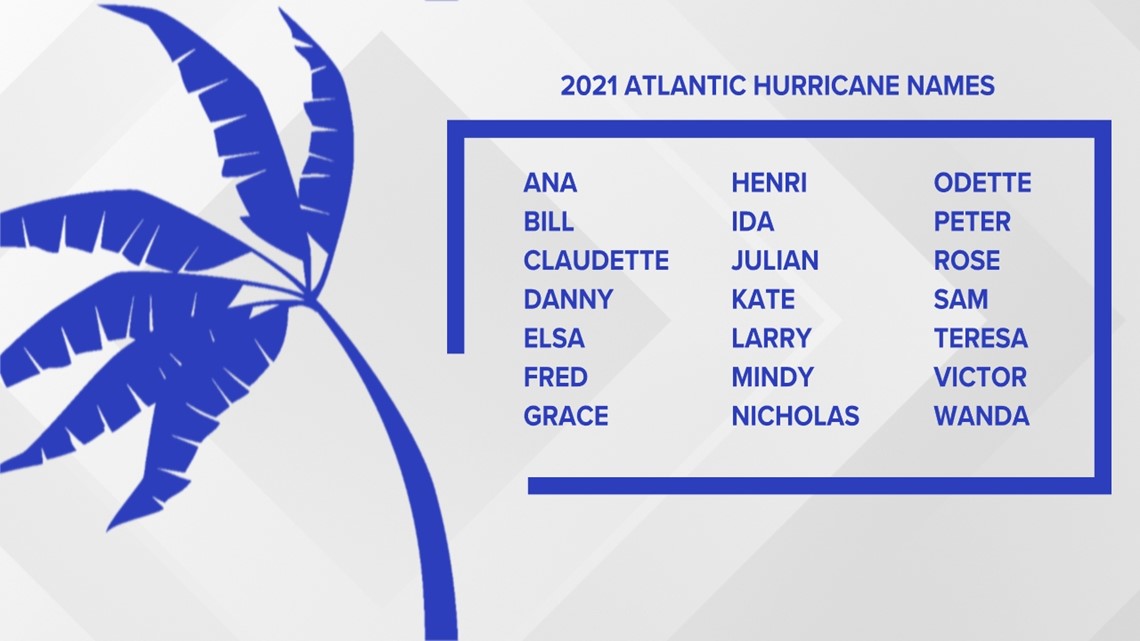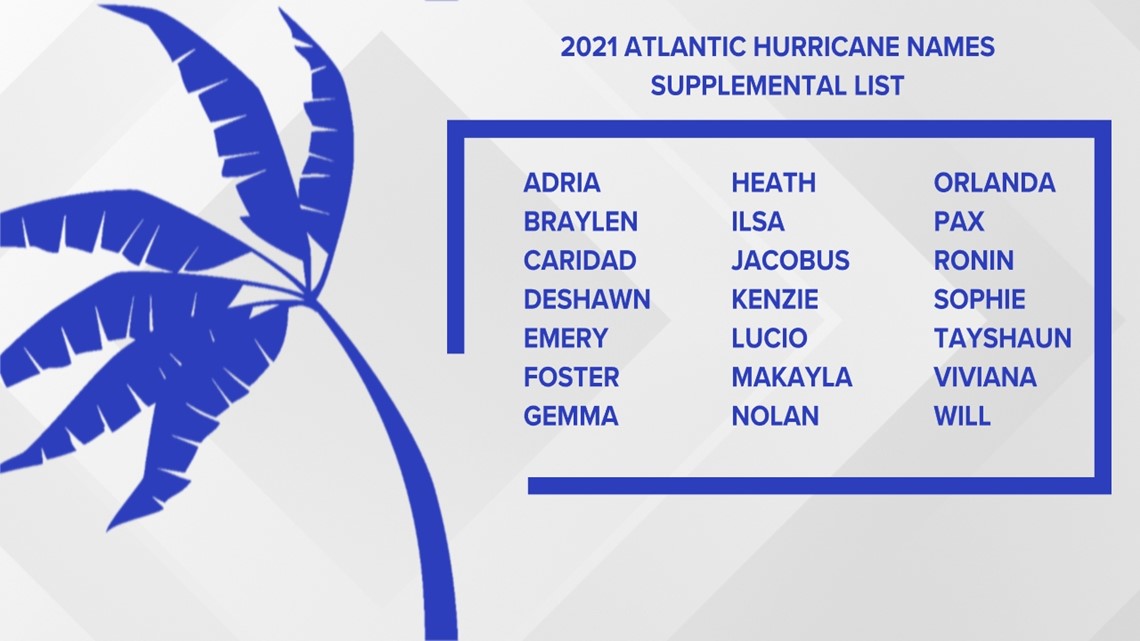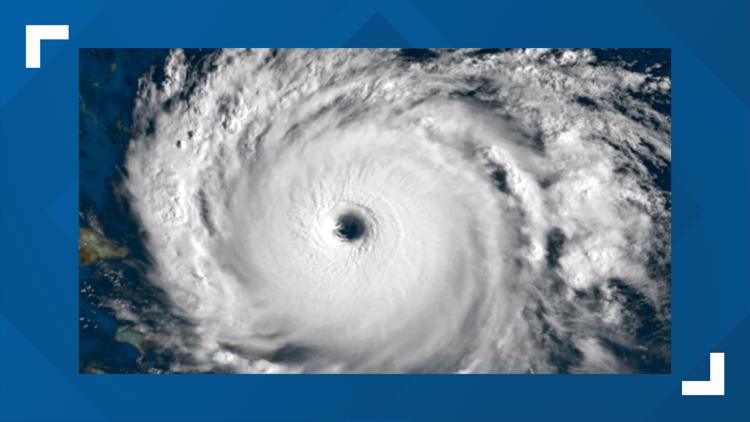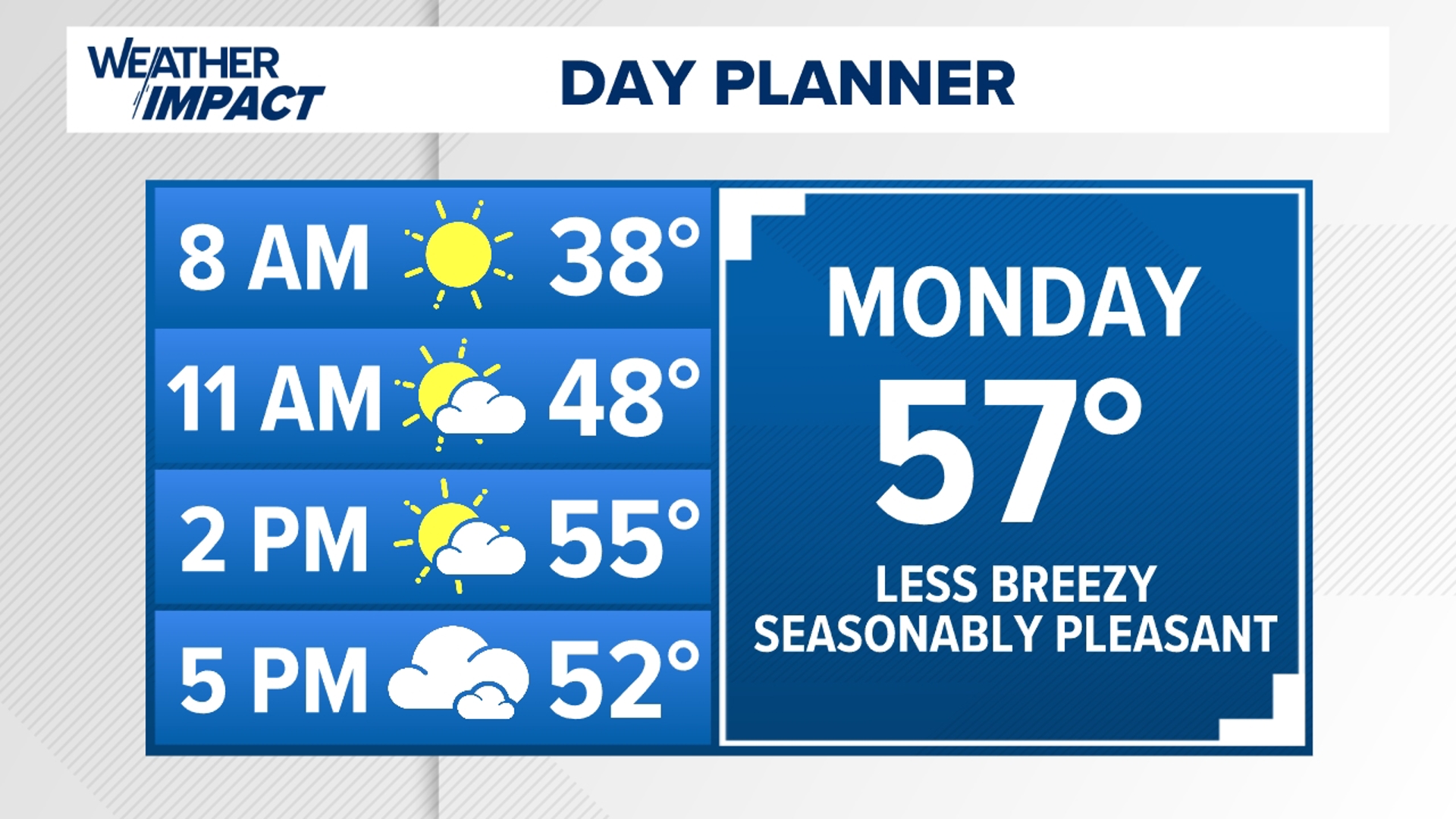Temperatures are cooling off, and when we say cooling off -- we really mean it.
Harrisburg International Airport posted a low temperature yesterday of 33 degrees, just one degree above freezing.
While we get the cool, Canadian air bringing us temperatures that are well below average, Mother Nature is still churning out storms in the Atlantic.


This is the first time in history we have had back to back years where we go through the entire list of tropical cyclones.
Normally what we would do in this scenario is go right from the final name to the Greek alphabet, but now there is a supplemental list instead.


The annual Atlantic tropical storm name list has only been used up twice before, once in 2020 and once in 2005, so why is this year so special?
This has happened for the first time ever in back to back years. Meteorologists from the NHC, realizing that it is likely to happen again, decided it would be best to make a supplemental list.
The first reason of course, is that this will likely happen again. We are continuing to trend in the direction of more and more hurricanes each year.
The second reason is that there can simply be too much focus on the use of Greek alphabet names, rather than the impacts from the actual storm. Unfortunately this detracts from the needed impact and safety messaging before each storm.
2020 was a historic year for hurricanes too. The pronunciation of a few Greek letters are similar and occur in succession (Zeta, Eta, Theta). Just last year this resulted in multiple storms with similar sounding names all occurring at the same time, leading to poor and murky communication.
Additionally, Eta and Iota were SO powerful that they were formally retired, meaning the future use of these names would not be appropriate.
With that being said, the World Meteorological Organization Hurricane Committee members agreed to make a supplemental list of names that would be used instead of the Greek alphabet.
Names on this list can be retired and replaced in the future, when necessary.



